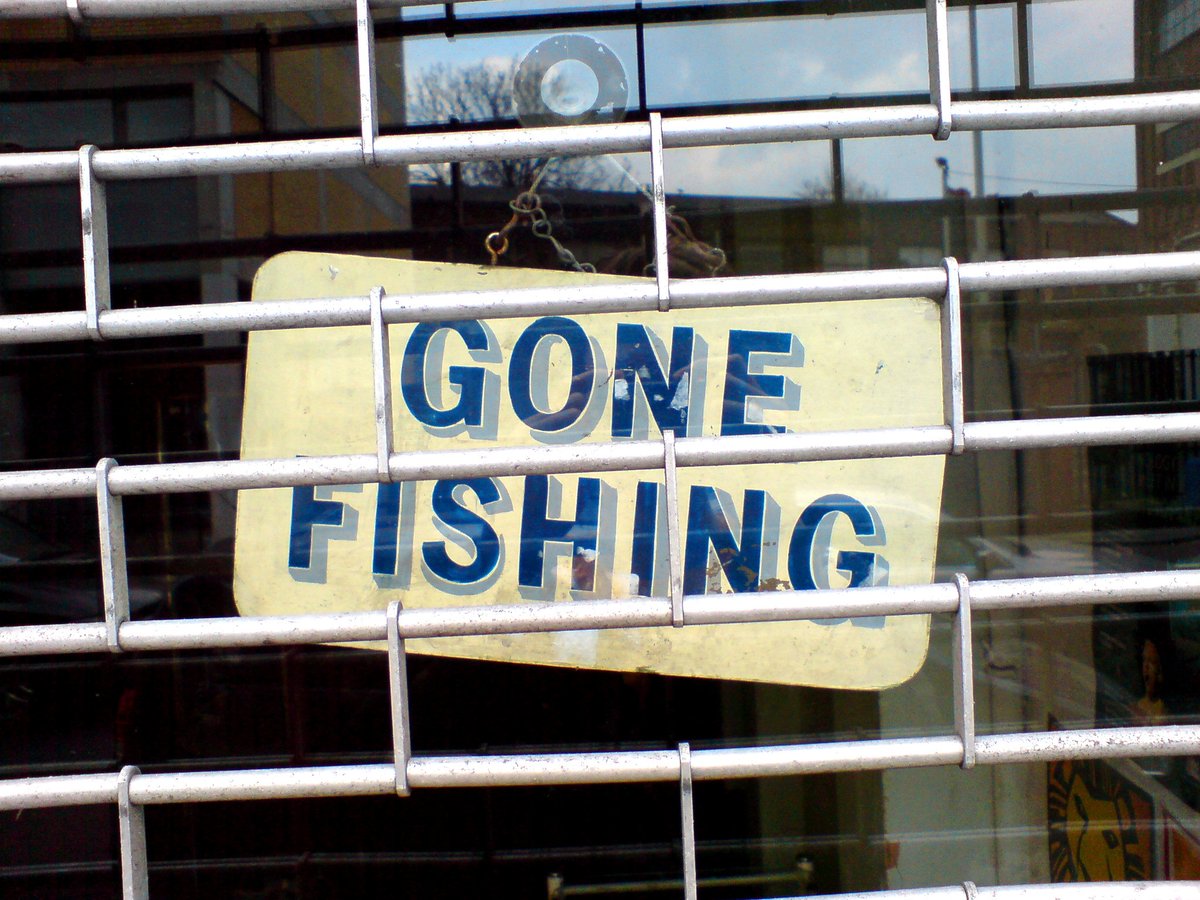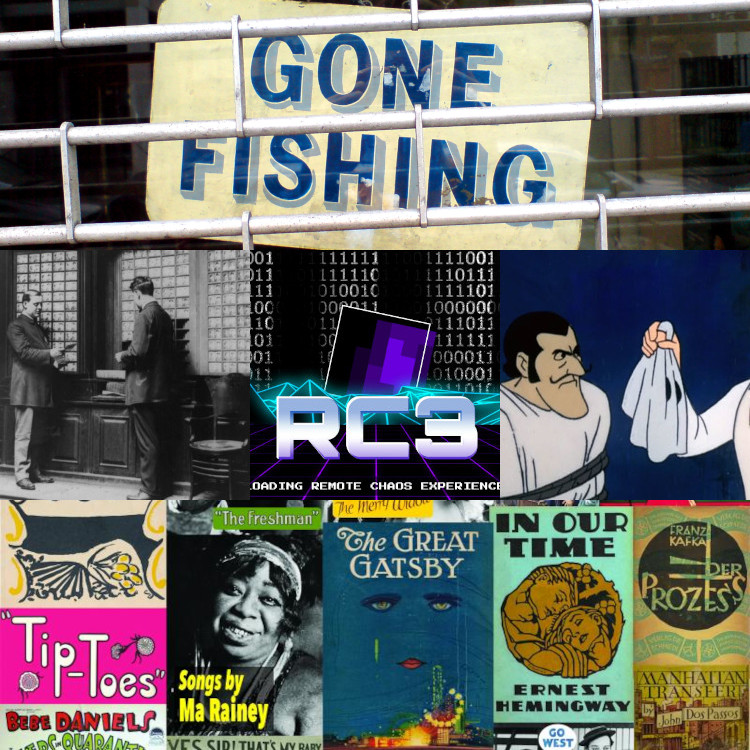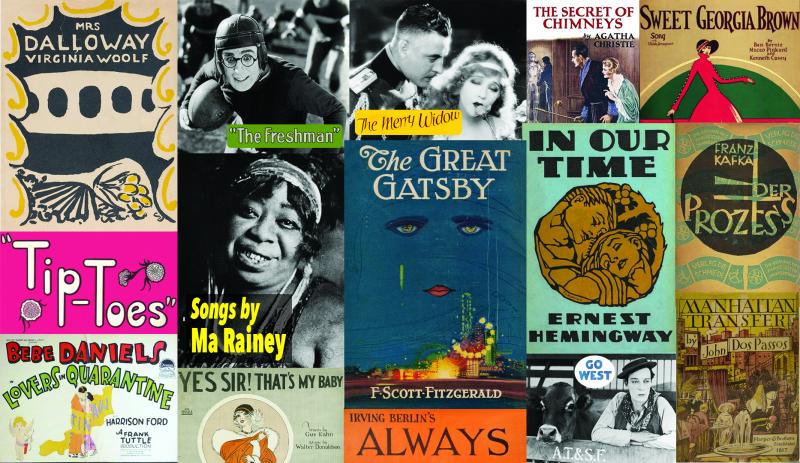
It's been a decade since @apophenia introduced me to the idea of "email sabbaticals." That's when you go away and turn off your email.
zephoria.org/thoughts/archi…
1/
zephoria.org/thoughts/archi…
1/

Not just setting an out-of-office message, but rather deleting all inbound mail and asking correspondents to try again after the break. In her message, boyd explains to those correspondents who know how to reach her mother that this is the only way to reach her.
2/
2/
Here's the rationale: if you allow email to pile up while you're trying to unwind, it'll take months to catch up on when you get back, and you'll immediately burn out, incinerating all the value you got out of your break.
3/
3/
What's more, you'll still fail to clear the backlog - you'll have to declare "email bankruptcy" and fail everyone who'd contacted you anyway. It's a bad deal for you AND for the people who email you during your break.
4/
4/
Here's how boyd's email sabbaticals work: six months prior, she informs her collaborators that she'll be taking some protracted downtime; a month before she confirms her commitments to collaborators and composes a checklist to ensure that she meets them prior to departure.
5/
5/
A week in advance, she warns everyone again that she's going offline and shuttering her inboxes. Close family members and her network administrator are given instructions for reaching her while on break, but no one else is.
6/
6/
She leaves, and shuts down her email. She knows she's going to miss new, time-sensitive stuff, but makes peace with it. In return, she gets the peace of mind that comes from knowing that she's going to come home to an empty in-box.
7/
7/
At the close of business today, I'm going on email (and work) sabbatical until Jan 4, 2021. Apart from one live event (the remote Chaos Communications Congress on Dec 27) I won't be accepting emails and I won't be replying to DMs or other messages.
rc3.world
8/
rc3.world
8/
I really, really need it.
Over the years, many people have expressed their admiration at my "productivity" - but the dirty secret of that productivity is that work is how I cope with stress.
9/
Over the years, many people have expressed their admiration at my "productivity" - but the dirty secret of that productivity is that work is how I cope with stress.
9/
It's not the worst problem to have: I wrote a whole novel since the crisis, while also launching four books and keeping up with my day-job at EFF.
But working to cope with stress has its limits. It's a good temporary fix, but it's no long-term solution.
10/
But working to cope with stress has its limits. It's a good temporary fix, but it's no long-term solution.
10/
For one thing, I've got a serious, untreatable, degenerating chronic pain condition, and working is how I hope with the pain, too - distraction works far better than any prescription meds for me.
11/
11/
But ignoring your body's pain signals is a dangerous tactic. It's why I'm now experiencing the worst continuous pain of my adult life (it's been a stressful year). Last week it was so bad I was walking with a cane.
12/
12/
I say all of this not to humblebrag about my commitment to my work, but rather in the interests of transparency. I'm keenly aware that we live our own blooper reels and everyone else's highlight reels.
13/
13/
I'm grateful for my work habits, truly - but they come at a really high cost, and balancing work-as-distraction and work-as-pathology is really, really hard. If you're wondering how to do what I do, have a little peek into the blooper reel, first.
14/
14/
It's been a high-stress, crazy year. We nearly went broke, then had a spectacular recovery (thank you, Kickstarter backers!), have tried our best to be good parents (with varying degrees of success). We've gone through blazing rows and many sleepless nights.
15/
15/
I've spent most of the year with sores at the corners of my mouth, which I only get under in the most extreme times of stress.
And we've had it GOOD. We're solvent, safe, and healthy. Thinking about what this would be like if any of those changed is terrifying.
16/
And we've had it GOOD. We're solvent, safe, and healthy. Thinking about what this would be like if any of those changed is terrifying.
16/
Hanging out with my digital community is a huge net benefit to me, but unplugging from that community is something I increasingly value as I head towards my 50th birthday next July.
17/
17/
My first digital community experience was sending IMs to other users of the timeshare mainframe we plugged into when I was six years old, in 1977, when my dad brought home an acoustic coupler and my mom found 1,000' of brown paper towel to feed into the teletype.
18/
18/
Some (most) of my life's most important relationships, friendships, and discussions have taken place over this medium, and an enormous amount of that good stuff started with a conversation with a stranger.
19/
19/
I never felt the outrage that attended the introduction of the telephone into Edwardian England: "Anyone -- any wild fool off the street -- could simply barge bellowing into one's office or home, preceded only by the ringing of a telephone bell."
mit.edu/hacker/part1.h…
20/
mit.edu/hacker/part1.h…
20/
For me, finding my people (and being found by them) has been the highlight of my half-century. Touring and speaking turned these digital relationships into personal ones.
21/
21/
But: moderation in all things. I'm writing four of these threads this morning, doing a couple interviews and meetings, and then putting my lid down until 2021 (save for a brief dial-in to CCC on the 27th).
22/
22/
I'm going to swim in our lovely outdoor public pool, which, thankfully, has figured out how to remain open during the pandemic. I'm going read in the backyard hammock and hike in Griffith Park.
I'm not going to answer - or accept - email while I'm gone.
23/
I'm not going to answer - or accept - email while I'm gone.
23/
And I say all of this because it's taken a decade for me to really understand what danah was getting at (she's a very smart person and I often benefit from reflecting on our conversations).
24/
24/
And also, to show you a bit of the blooper reel. Coping strategies are great and necessary, but they're no substitute for addressing the underlying problems. I'm proud of the work I do, but I'm also still learning how to do it right.
25/
25/
Image:
Alex Watson:
flickr.com/photos/sifter/…
CC BY-NC 2.0:
creativecommons.org/licenses/by-nc…
eof/
Alex Watson:
flickr.com/photos/sifter/…
CC BY-NC 2.0:
creativecommons.org/licenses/by-nc…
eof/
• • •
Missing some Tweet in this thread? You can try to
force a refresh







